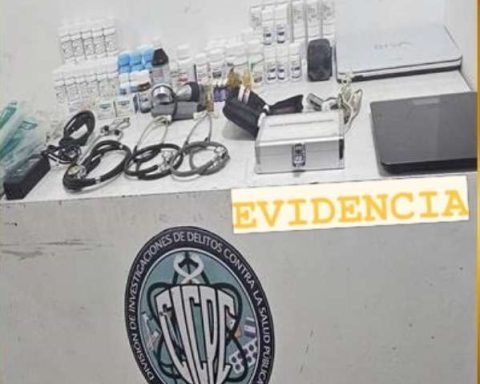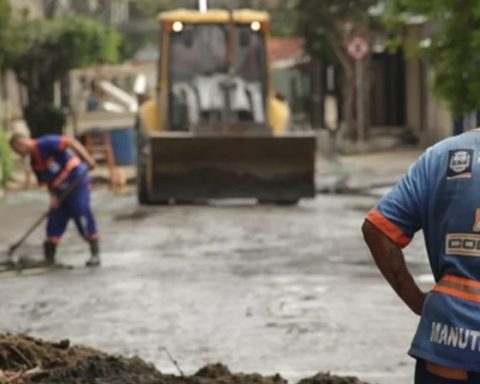Boric makes the first management report in Congress with an emphasis on the economy and social rights
WATCH VIDEO
The President of Chile, Gabriel Boric, made this Wednesday his first presidential management report in the National Congressin which he spoke briefly about his first two months in office and unveiled the Government’s roadmap in matters of social rights, better democracy, justice and security, inclusive growth and the environment, which were the axes into which he divided his speech.
“Truth, justice, memory, reparation and non-repetition are our commitments as a Government”he pointed out in Valparaíso, remembering the victims of the social outbreak of October 2019, and indicated that the country cannot continue to allow people to lose their lives in the midst of protests.
Amid applause, he pointed out that the social outbreak was not an isolated event, but rather it was “an explosion of multiple malaises and discontents that were ignored or minimized for decades.”
Boric, who, at the age of 36, became Chile’s youngest president when he took office on March 11, assumed responsibility for confronting the inequality experienced by the Chilean population, and indicated that he plans to build a country “where education, health, housing, your social security, are not determined by how much money your family has. They are rights and as such, the State has the duty to guarantee them.”
Furthermore he said that the process that is proposed to be carried out requires “responsibility and historical awareness”, since it is a “long-winded” project, which does not end with this Government.
The #PublicAccount2022 made by Pdte. @gabrielboric set the roadmap for @Government of Chile where we will work diligently for the well-being of people with disabilities and caregivers, children and adolescents, the elderly and indigenous peoples. (Thread) pic.twitter.com/oK3QUZUpsK
– Jeanette Vega (@jeanvegamorales) June 1, 2022
The Chilean president referred in turn to the war in Ukraine and mentioned Alberto Fernández, whom he highlighted as one of the world and regional leaders with whom he has met to jointly assess the consequences of this conflict and promote peace multilaterally. .
Giving an account of what has been done so far in economic matters, he highlighted the “Chile Supports” plan, which mobilizes more than 3,700 million dollars and will create half a million jobs, of which at least half will be women, and clarified that in the next All the lines of this plan will be operational for 60 days, and he added that they managed to freeze public transport fares for the whole year, together with the stabilization of the price of fuel for heating.
“Democracy in the country and at home!”he stated, after recalling that there cannot be employment positions that are vetoed for women, and that in the same way men cannot be separated from household or care tasks because they are considered feminine.
Before addressing each axis of the management report in particular, the president highlighted the importance of the exit plebiscite of the new Constitution, to be held on September 4, but assured that both the option to approve and reject will be legitimate, “and the Government has the duty to guarantee that citizens express themselves freely at the polls in an informed manner.”
In the axis of social rights, he clarified that in August he will send a bill that reforms the pension system and promised that, with this reform, Chileans 65 years of age or older will receive a basic pension guaranteed by the State of 250,000 Chilean pesos. (approximately $300),
Regarding health, he indicated that will send a bill that will create a Universal Health Fund“with the aim of generating greater equity in access to services, improving care, increasing solidarity in the financing of the system and reducing household spending”, in addition to entering today the urgency to process the bill that establishes the right to euthanasia in Chile, “through a process of express, free and informed consent”.
closed the axis of social rights with free higher education, the forgiveness of educational debts, and the promotion of a project that reduces the working day to 40 hours per week.
boarding the axis of better democracy highlighted a legal mechanism to protect the right to freedom of the press and “those who fulfill a fundamental task in the right to information, as Francisca Sandoval did, for example,” said Boric, referring to the journalist killed after being shot while covering the labor day march.
In the same item, he addressed the probity and transparencyand clarified that “This will be a government where corruption and taking advantage of situations of power and abuse will have no place.”
From the beginning, the Boric administration proclaimed itself as a feminist government, and in this matter is that he made a call to approve the Law on the Right of women to a life free of violence, in addition to presenting the bill on parental responsibility and effective payment of food pensions.
To finalize the axis, Boric indicated measures regarding native peoples and migration, and indicated that they will promote territorial parliaments that recognize their own authorities and institutions, respecting indigenous protocols and following international standards.
speaking of justice and securitypresented as main proposals the project that creates the Ministry of Public Security, Civil Protection and Citizen Coexistence, the reform of the Carabineros, in addition to a project that radically limits legal access to weapons so that it can “strengthen the capacity of prevention and control of violence in the country.
today the president @gabrielboric announced in the #PublicAccount2022 nearly 60 measures and initiatives that materialize changes in social rights, better democracy, justice and security, inclusive growth and the environment.
Know all the measures here: https://t.co/SX4E8GmyzW pic.twitter.com/w2S2aGsVpK
– Presidency of Chile (@Presidencia_cl) June 1, 2022
The head of state also announced that during June he will present a tax reform project that will generate more resources “to meet our commitments to the country, as well as to structure a fairer and more transparent tax system.”
In the same matter, he spoke of the decentralization plan, for which he will begin with the process of transferring powers to regional governments, so that budget execution can be facilitated, which is added to the development of the National Railway Development Plan, an instance in which he announced that work has already been done to make the train between Santiago and Valparaíso a reality.
Finally, the president addressed the environment axiswhere he announced that the Climate Change Framework Law, which implies a comprehensive transformation of the State to deal with this matter, in addition to advancing in combating the water crisis that occurs in some areas of the country and that seeks to prioritize human consumption of water and the rational use of this resource for productive activities. .
The adherence to the Escazú agreement, the creation of marine corridors together with Canada and the promotion of multilateral cooperation with an ecological perspective are part of the measures highlighted by Boric in terms of the environment and with which he closed the last axis of his speech, almost two hours and twenty minutes, the first of the four reports that he will have to carry out during his administration, which will end in March 2026.
This presidential management report has been carried out since 1990 in the Hall of Honor of the National Congress, in the city of Valparaíso, 120 kilometers from Santiago.
Traditionally it was held every May 21, on the day of the Naval Glories, but this changed with the last speech given by former president Michelle Bachelet and since then it has been held on June 1.


















